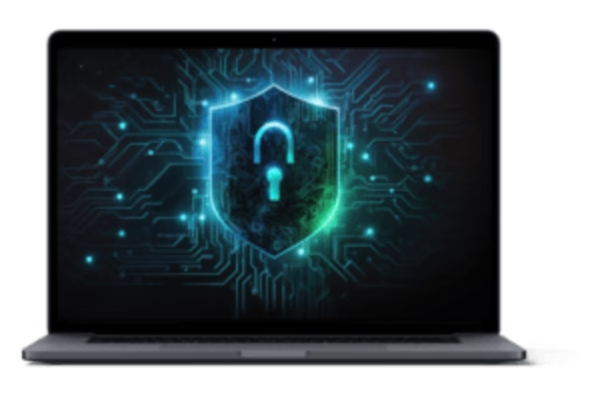Managed Detection and Response (MDR): The Cybersecurity Solution Your Business Can’t Afford to Ignore
What Is Managed Detection and Response (MDR)?
Managed Detection and Response (MDR) is a modern cybersecurity service that combines cutting-edge threat detection, incident response, and 24/7 security monitoring into one powerful, outsourced solution. Instead of building a full-scale Security Operations Center (SOC) in-house, businesses can partner with a trusted provider like CyberVolt Security to gain real-time protection and peace of mind.
With the increasing sophistication of cyber attacks — from ransomware to zero-day exploits — traditional firewalls and antivirus software are no longer enough. You need a proactive, intelligent system that can detect, contain, and respond to threats before they cause damage.
Why Your Business Needs MDR — Now More Than Ever
Whether you're a tech startup, healthcare platform, eCommerce company, or financial services provider, your business is a target. In fact:
- 66% of small and mid-sized businesses experienced a cyber attack in the past year.
- The average dwell time of a breach is 207 days — attackers can sit undetected in your system for months.
- Regulatory compliance frameworks like HIPAA, GDPR, and SOC 2 now expect businesses to have proactive threat monitoring.
What CyberVolt Security’s MDR Service Includes
At CyberVolt Security, we provide fully managed detection and response with a focus on speed, visibility, and precision. Our MDR platform is built to detect threats early, respond instantly, and protect your data, infrastructure, and brand reputation.
 24/7 Threat Monitoring
24/7 Threat Monitoring
We monitor your networks, endpoints, and cloud environments around the clock using AI-driven threat detection and real human analysis.
 Real-Time Incident Detection
Real-Time Incident Detection
Our platform uses behavioral analytics, machine learning, and threat intelligence feeds to spot suspicious activity — fast.
 Expert Incident Response
Expert Incident Response
If a threat is detected, our incident response team isolates, contains, and eliminates it — often before you even know it's there.
 Cloud & Endpoint Coverage
Cloud & Endpoint Coverage
From AWS and Azure to laptops and mobile devices, our MDR solution covers your full digital footprint.
 Compliance Reporting
Compliance Reporting
Need to meet HIPAA, GDPR, PCI-DSS, or SOC 2 standards? Our reports make it easy to prove compliance to regulators, clients, and stakeholders.
Benefits of CyberVolt Security's MDR Services




How Our MDR Service Stacks Up Against the Competition
| Feature | CyberVolt MDR | Traditional MSSP | In-House Security |
|---|---|---|---|
| 24/7 Monitoring |  |
 |
 (cost-prohibitive) (cost-prohibitive) |
| Real-Time Threat Detection |  |
Limited | Depends on team size |
| Incident Response |  (included) (included) |
Often not included | Time-consuming |
| Cloud + Endpoint Coverage |  |
Partial | Complex setup |
| Compliance Support |  |
 |
 |
Use Case: How We Saved a Healthcare Startup from a Ransomware Nightmare
A fast-growing telemedicine company contacted us after noticing strange logins from unknown IPs. Within 30 minutes, our MDR platform flagged lateral movement in their cloud infrastructure. Our response team jumped in, contained the threat, and prevented a full-scale ransomware encryption — all before sensitive patient data was touched.

MANAGED DETECTION AND RESPONSE
MDR services provide continuous monitoring of your IT environment, swiftly identifying and responding to threats. By leveraging advanced analytics and expert analysis, MDR helps detect and mitigate cyberattacks before they cause significant damage.
FIREWALL AND NETWORK SECURITY MANAGEMENT
Implementing and managing firewalls and other network security measures protect your organization's infrastructure from unauthorized access and cyber threats. Regular updates and monitoring ensure that defenses remain effective against emerging threats.
DATA BACKUP AND DISASTER RECORVERY
Having a robust data backup and disaster recovery plan ensures business continuity in the event of data loss due to cyberattacks or other disasters. Regularly backing up data and testing recovery procedures minimize downtime and data loss.
PENETRATION TESTING
Simulates real-world cyberattacks to identify and fix vulnerabilities before malicious hackers can exploit them.
MANAGED CYBER SECURITY SERVICE
Provides 24/7 monitoring, threat detection, and incident response through a third-party cybersecurity team, ideal for organizations without in-house expertise.
COMPLIANCE AND RISK ASSESSMENT
Ensures that businesses meet data protection laws and industry standards (like GDPR, HIPAA, PCI-DSS), and identifies security gaps through audits.
MALWARE SCANNING DETECTION AND REMOVAL
Scan digital assets for malware. we also remediate and mitigate risk.
AI THREAT MONITORING AND INCIDENCE RESPONCE
Real time threat monitoring, event management and incidence response.
PHISHING SOLUTIONS
Scan and detect and respond to phishing attacks in real time
ASSET DISCORVERY AND PROTECTION
Discover hidden online assets that are exposed to attack and secure them
WEBSITE SCANNING AND PERIMETER HARDDENING
Manual website vulnerability scan, deep vulnerability scanning, penetration testing and risk mitigation
RISK AND COMPLIANCE
Reduce reputational and transaction risks and maintain regulatory compliance.
REAL TIME CVE DETECTION
continuous monitoring and identification of known vulnerabilities (Common Vulnerabilities and Exposures) as they emerge.
IDENTITY THREAT PROTECTION
monitoring user behavior and access patterns to identify signs of identity-based attacks, such as account takeovers or unauthorized access. This proactive approach helps organizations respond instantly to suspicious activity, minimizing the risk of data breaches and identity misuse.
ZERO DAY VULNERABILITY DETECTION
identifying previously unknown security flaws that have not yet been patched or disclosed. By monitoring system behavior, network traffic, and anomalies in real time, this approach helps detect and mitigate zero-day threats before attackers can exploit them, enhancing overall defense against emerging cyber risks.
CROSS SITE SCRIPTING ATTACK
XSS (Cross-Site Scripting) Attack is a common web security vulnerability that allows attackers to inject malicious scripts into trusted websites, enabling them to steal user data, hijack sessions, or deface web pages. Preventing XSS involves proper input validation, output encoding, and using security headers.
REMOTE CODE EXECUTION (RCE)
Remote Code Execution (RCE) is a critical security vulnerability that allows attackers to run malicious code on a target server or device from a remote location. RCE can lead to full system compromise, data theft, or unauthorized control, and is typically exploited through insecure input handling or unpatched software.
SQLI (STRUCTURE QUERRY LANGUAGE INJECTION) ATTACK
SQL Injection (SQLi) is a web vulnerability that lets attackers manipulate database queries to access, modify, or delete sensitive data. It’s prevented through input validation and the use of prepared statements.
LOCAL FILE INCLUSION
Local File Inclusion (LFI) is a web vulnerability that allows attackers to access or execute files on a server by exploiting insecure file path inputs. It can lead to data exposure or remote code execution if not properly mitigated.
REMOTE FILE INCLUSION
Remote File Inclusion (RFI) is a web vulnerability that allows attackers to load and execute external files on a server by exploiting insecure file input. It can lead to full server compromise and is often used to deploy malicious scripts.
COMMAND INJECTION
Command Injection is a critical vulnerability that allows attackers to execute arbitrary system commands on a server by injecting malicious input into a vulnerable application. It can lead to data breaches, system compromise, or full control of the server.
INFORMATION GATHERING
Information Gathering is the first phase of ethical hacking and penetration testing, where attackers or security professionals collect data about a target system or network to identify potential vulnerabilities. It includes techniques like reconnaissance, WHOIS lookups, and scanning.
OSINT (OPEN SOURCE INTRLLIGENCE)
OSINT (Open Source Intelligence) is the practice of collecting and analyzing publicly available data from sources like websites, social media, and forums to gather actionable intelligence. It’s widely used in cybersecurity, ethical hacking, and threat intelligence.
RECONNAISSANCE
Reconnaissance is the initial phase of a cyberattack or penetration test, where information about a target system or network is gathered to identify potential entry points. It includes passive and active techniques like foot printing, scanning, and OSINT.






